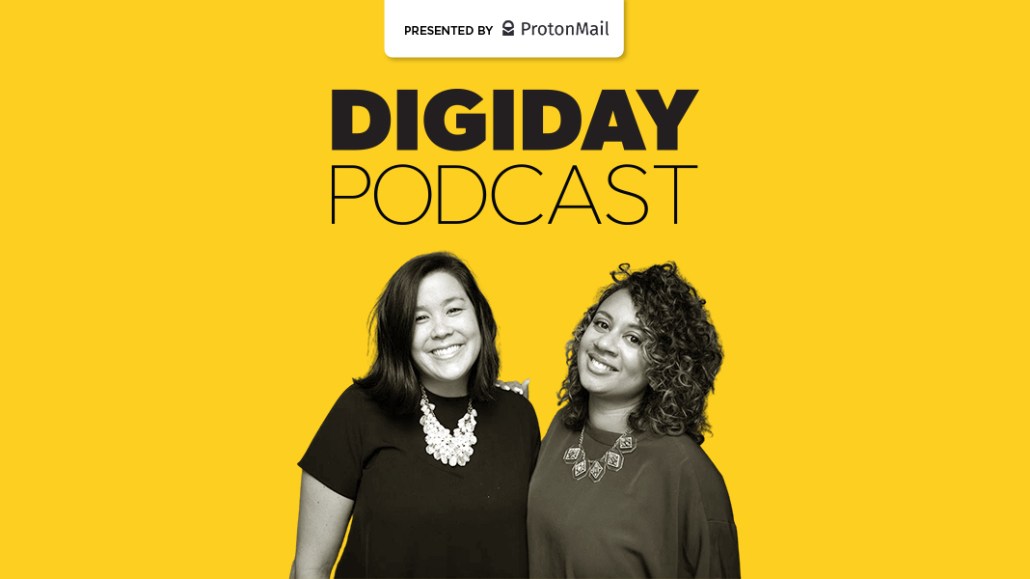Save 50% on a 3-month Digiday+ membership. Ends Dec 5.
Shine co-founders Naomi Hirabayashi and Marah Lidey on how mental health went mainstream

Subscribe: Apple Podcasts | Stitcher | Google Play | Spotify
Whatever else can be said about the year 2020, it has at least led to a renewed focus on issues of mental well-being for those open to discussing it.
“Even in 2019 there wasn’t this spotlight on mental and emotional health,” said Marah Lidey, co-founder of wellness-focused company Shine, on the Digiday Podcast. “The pandemic is helping to destigmatize conversations around mental health,” her co-founder Naomi Hirabayashi added.
Founded in 2016, Shine offers guided exercises and community around mental wellness.
“This summer, we knew it was really important to prioritize, you know, Black mental health, specifically, in response to what was happening in our country,” Hirabayashi said. Their app notifies users of a daily theme and meditation exercise and is available in both free and paid tiers (at either $12 a month or $54 for a year).
According to Lidey and Hirabayashi, the company reaches 4 million users.
Ad position: web_incontent_pos1
Here are highlights from the conversation, which have been lightly edited for clarity.
Mental healthcare can be preventative
Lidey: “We’re going to spend $300 billion in mental health care in 2020. And $70 billion of that alone is going to depression. And so our angle is ‘how do we get to it before it gets to a place where we’re just funneling our money towards crises,’ right? How do we help people on a preventative basis?”
Shine as a company perk
Hirabayashi: “There has been a lot of inbound interest in offering Shine as a mental health benefit for companies, particularly because we are the most inclusive and representative self care app. Progress that has been made this year: a lot more vocabulary and understanding from companies on the importance of inclusion and specificity about that inclusion. So for example, in response to the uprising for racial justice, that really hit the main stage this summer, we knew it was really important to prioritize Black mental health, specifically, in response to what was happening in our country. And so we launched a free category for Black well-being, and also, just as a business [we] are not afraid to speak to human rights.”
Ad position: web_incontent_pos2
Banner ads are a sure way to kill the vibe
Hirabayashi: “[We’re] not really into banner ads or pop-up ads or anything like that. Because of consumer demand and consumers holding companies accountable, I think there’s more thoughtful partnerships around advertising or marketing that are happening as a result of just people looking for things that feel really natural, really authentic, versus just something that’s disrupting my experience.”
Seeing mental health as a common challenge helps
Hirabayashi: “the most powerful insight that we found from the pandemic, as it relates to mental health, is that it is helping to destigmatize conversations around mental health. Our community: they’re saying that ‘I’m talking about my mental health more than I did before the pandemic.’ People are talking about their mental health 52% more than they were before the pandemic, because they know that other people are suffering, too.”
More in Media

What publishers are wishing for this holiday season: End AI scraping and determine AI-powered audience value
Publishers want a fair, structured, regulated AI environment and they also want to define what the next decade of audience metrics looks like.

Digiday+ Research Subscription Index 2025: Subscription strategies from Bloomberg, The New York Times, Vox and others
Digiday’s third annual Subscription Index examines and measures publishers’ subscription strategies to identify common approaches and key tactics among Bloomberg, The New York Times, Vox and others.

From lawsuits to lobbying: How publishers are fighting AI
We may be closing out 2025, but publishers aren’t retreating from the battle of AI search — some are escalating it, and they expect the fight to stretch deep into 2026.
Ad position: web_bfu